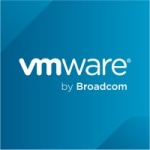The new release of Oracle Data Integrator (ODI 12c) is now available. Let´s find out what the new features of ODI12c are that this version includes.
First, is there anything fancy in the installation process?
Just one note here: to be able to use ODI Studio, the enterprise
installation needs to be selected (instead of the Standalone option)
while launching the ODI installation program.

For the configuration part, creating a new login to ODI repository
you are requested to specify a new wallet password. ODI12c provides you
with a possibility to store your credentials in a wallet that is
protected by a password. How much it helps to protect and manage your
credentials with a single password!

Goodbye Interfaces, Welcome Mappings
First of all, we do not deal with interfaces anymore; mappings
are offered to the developers instead. On this background let´s talk
about common features and functions across various ETL tools, like Informatica Powercenter,
which has many advantages. As the previous version of ODI and
Powercenter are totally different technologies, there is no tool to
convert the flow automatically. Either you need to use the Powercenter
workflow manager to build a new ODI package, or you can use a
Powercenter mapping to create a new ODI interface, keeping in mind all
the constraints that ODI11g may have, including its inability to load
multiple targets. What changes now? Source and target data tables can
now be dragged and dropped to the same canvas, which was not the case
for the previous version.
Example canvas with components panel:

Moreover, all objects have IN and OUT connectors. There is also a
possibility to use multiple targets within the same mapping as the OUT
connector can be mapped to many IN connectors. The split component may
be used to direct rows to the desired destination based on particular
conditions. And speaking of the split option - a new components panel
has been added, containing operations like join, filter, lookup or
split to simplify mapping creation (see picture above). The star icon
(distinct component), enables selecting particular rows. Finally you
can take advantage of the reusability of mappings, which can be applied
across various projects by simply connecting to other components.
All these changes made Oracle Data Integrator more like Informatica
Powercenter (or other ETL tools) when it comes to the creation of the
transformation mappings. However, it’s good to remember that their main
paradigm continues to be different, as ODI is still considered an ELT
tool while Powercenter is a traditional ETL tool. Of course there will
be supporters of both and the choice may depend on budget or
functionality.
More Nice Features
We also found some other features that make our lives easier. One of them is the auto completion and syntax highlighting
in expression fields. Another one is that when one column is selected
all the related columns are highlighted across the mapping. The entire
path for transformations is perfectly visible. Nice, isn’t it? I prefer
that much more than checking every single box to track all
modifications.
Undoubtedly, adding a debugger was long awaited. It provides
you with options to set breakpoints, inspect the values of variables,
debug sessions or data. Step by step, you can easily review your work.

We also enjoyed the enhanced security model. Security is
assigned to a role and the same level of security is shared by all users
belonging to that role. Additionally, ODI standalone agents are
managed by WebLogic Management Framework, which gives us the benefit of
centralized management. You are offered a wizard to carry out the
configuration:

Agents can be controlled by Node Manager.
Any drawbacks?
As always, there is a discussion around new releases on which
features are useful and which are not. Some changes, like the layout,
can be considered both as an advantage and a disadvantage. In 12c this
is the case for the complexity. You are now able to see more objects at
the same time, providing you with some new options like the components
panel, but on the other hand it makes everything less transparent and
a decent screen size is needed.
To read the complete post, go to:
https://www.clearpeaks.com/blog/etl/what-are-the-ne...
Disclaimer: The company I work for is partners with Oracle and other vendors.
Disclosure: My company does not have a business relationship with this vendor other than being a customer.




















You can find more about the ODI history on the link : www.oracle.com/us/corporate/press/016802_EN